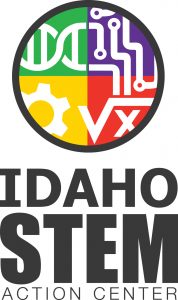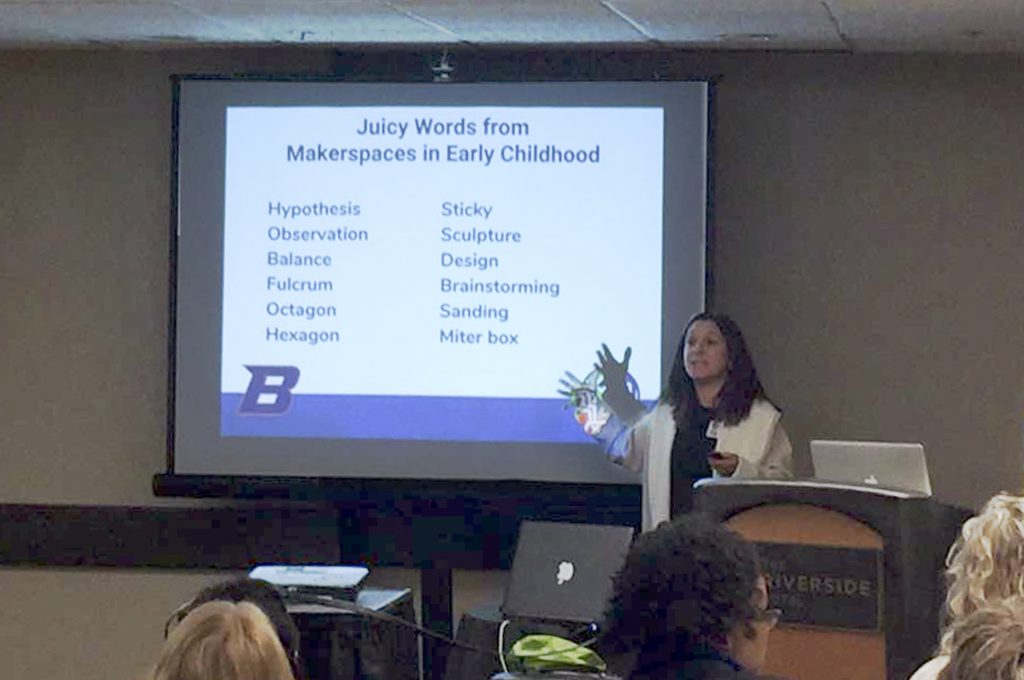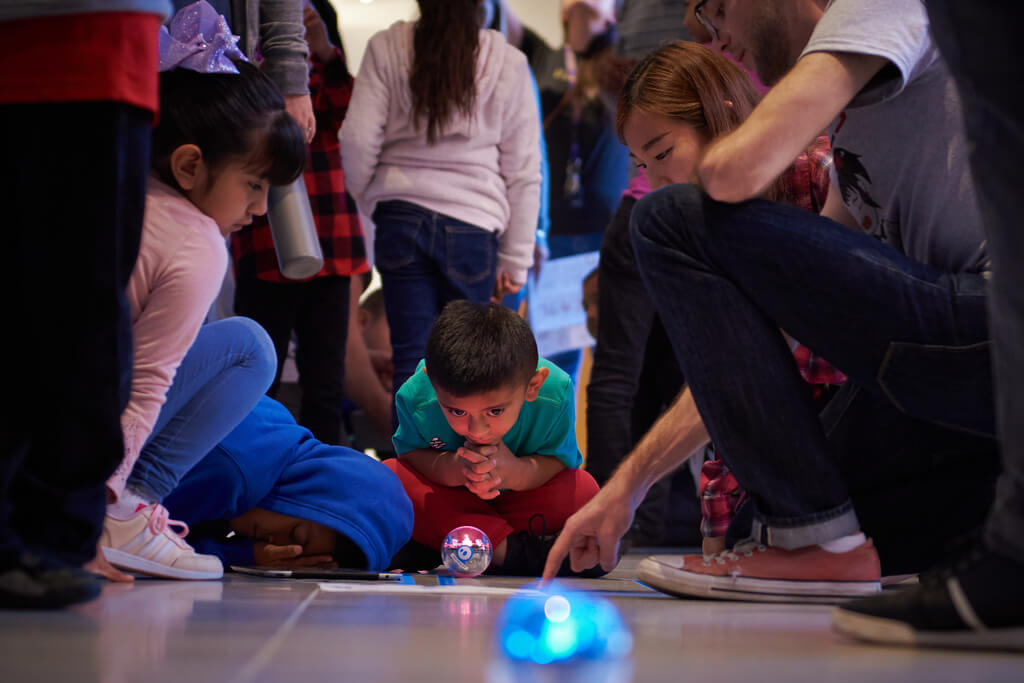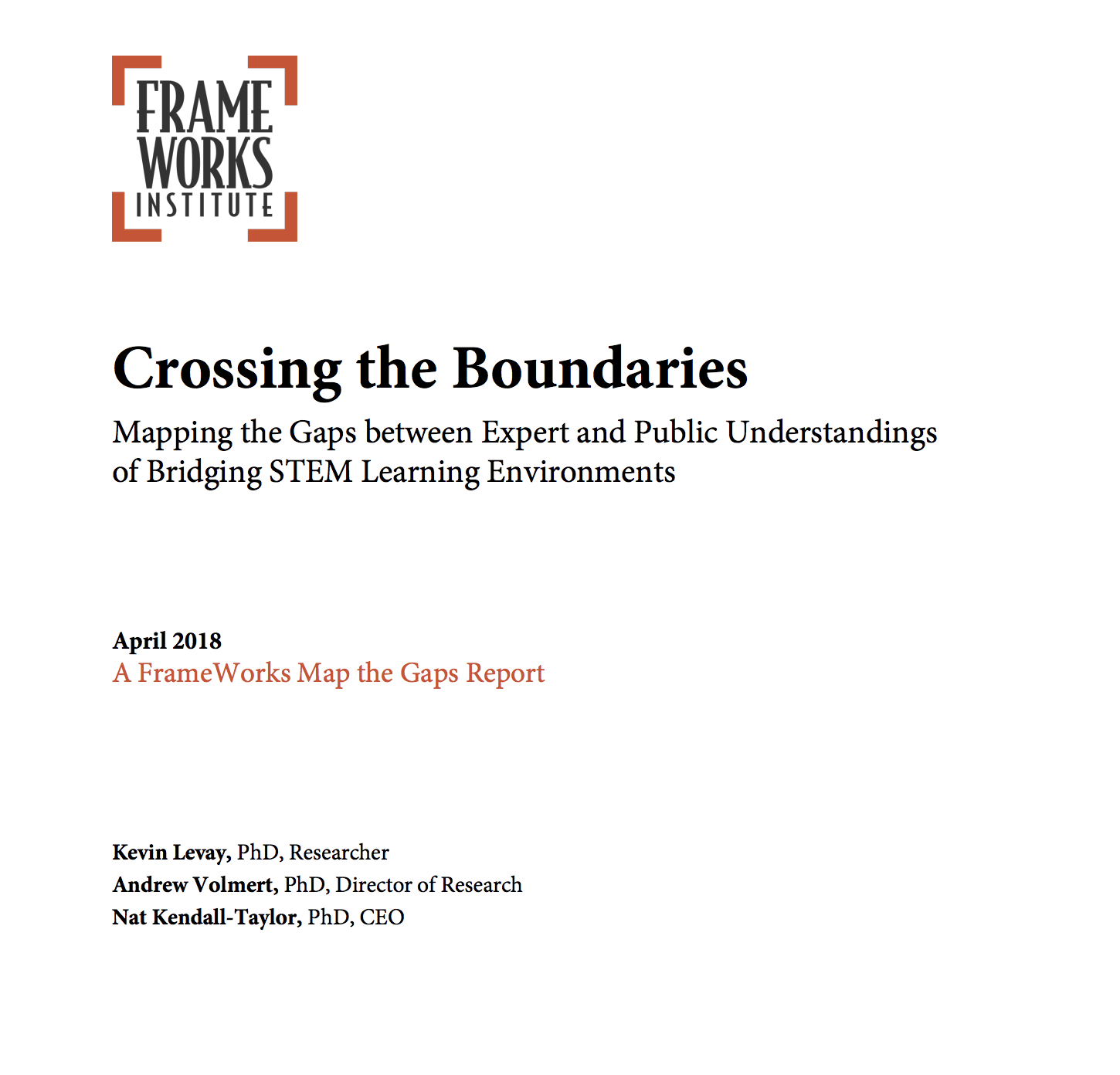 On October 26, 2018, over 50 key stakeholders in early education gathered at the Idaho Early STEM Summit in Boise. Led by the Idaho STEM Action Center (STEM AC), this convening of professionals—comprised of representatives from research institutions, government agencies, libraries, and community-based organizations—is the first of its kind in the state to focus on advocacy for STEM opportunities for young children ages birth through age 8.
On October 26, 2018, over 50 key stakeholders in early education gathered at the Idaho Early STEM Summit in Boise. Led by the Idaho STEM Action Center (STEM AC), this convening of professionals—comprised of representatives from research institutions, government agencies, libraries, and community-based organizations—is the first of its kind in the state to focus on advocacy for STEM opportunities for young children ages birth through age 8.
Boise State University’s College of Education opened our morning with a presentation on what the research says about early STEM. Drs. Deborah Carter and Yvette Mere-Cook identified children’s inborn drive to make sense of their world and their ability to construct knowledge alongside engaged adults. Their groundwork on inquiry-based learning, best practices and common verbiage articulated an overarching call to action for STEM in Idaho early education. Armed with this information, attendees broke off into both region- and organization-specific groups to first define our current deficiencies in early STEM education, brainstorm ideas for personal actions, and develop programmatic objectives to begin the process of systems building for an early STEM network. The groups hammered out seven areas of focus: 1) current early learning centers; 2) early STEM methodology; 3) professional development needs; 4) family engagement; 5) current ecosystem and shared resources; 6) existent systems; and 7) hindrances to our vision.

For our keynote, Boise City Councilwoman Lisa Sanchez delivered a moving speech about ways to mitigate barriers for and reach underrepresented communities to participate in early STEM education programs. She began with the challenges she overcame while growing up poor in a small rural town in southeastern Idaho. She was the first of her family to graduate from college, and went on to become the first Latina to campaign for and win a seat on the Boise City Council. Ms. Sanchez’s work with various underrepresented groups has helped her understand that those that have truly made a difference didn’t necessarily come from the same community nor speak a common language. Where words can’t connect people, she said, “reach out and authentically speak love over others. People understand how you make them feel, allowing them to feel they belong. Only then can our young children in the underrepresented populations have the safety to begin engagement in STEM learning.”
During the afternoon, we held breakout sessions that highlighted the creation and selection process of grants for 7-15 early STEM pilot programs. The pilot programs will be supported by research from Boise State University as well as resources from Idaho Public Television, Idaho Commission for Libraries, Idaho Out-of-School Network, and the STEM AC.
In January 2019, we were pleased to announce the recipients: 10 sites have been awarded grants to provide training and materials for early education practitioners and caregivers in rural communities to engage young children in inquiry-based STEM education through play. Each program will send two early educators to a seven-hour hands-on early STEM foundational training in early spring in preparation to create family engagement events in early STEM. Eight of these programs have Spanish speaking staff to facilitate these projects.
In the summer of 2019, the early STEM network will reconvene to evaluate the pilot programs, reflect on lessons learned and set new goals and an action plan for future activities.
The Early STEM Summit was made possible with support from the Joan Ganz Cooney Center at Sesame Workshop as part of the Families Learning Across Boundaries (FamLAB) Spark Grants Program through the generous support of the Heising-Simons Foundation, the Bezos Family Foundation, and Oath Foundation.
 Erica Compton is an Idaho native with over 30 years of experience in hands-on STEM education and training. In February of 2010 Erica joined the Idaho Commission for Libraries as a Project Coordinator. She co-developed the Make It at the Library project with the goal of strengthening STEAM skills and supporting entrepreneurship for people of all ages through maker-centered learning. Erica has had the privilege of participating in the Maker Movement at a national level through a variety of presentations and committee memberships including the Capitol Hill Maker Faire, Mayors Conference on Entrepreneurship, and the National Advisory Board on 3D Printing in Education & Accessibility. She joined the Idaho STEM Action Center as Program Manager in November 2015 and oversees grant development and management, best practice research and dissemination, and building partnerships with STEM organizations nationwide.
Erica Compton is an Idaho native with over 30 years of experience in hands-on STEM education and training. In February of 2010 Erica joined the Idaho Commission for Libraries as a Project Coordinator. She co-developed the Make It at the Library project with the goal of strengthening STEAM skills and supporting entrepreneurship for people of all ages through maker-centered learning. Erica has had the privilege of participating in the Maker Movement at a national level through a variety of presentations and committee memberships including the Capitol Hill Maker Faire, Mayors Conference on Entrepreneurship, and the National Advisory Board on 3D Printing in Education & Accessibility. She joined the Idaho STEM Action Center as Program Manager in November 2015 and oversees grant development and management, best practice research and dissemination, and building partnerships with STEM organizations nationwide.


